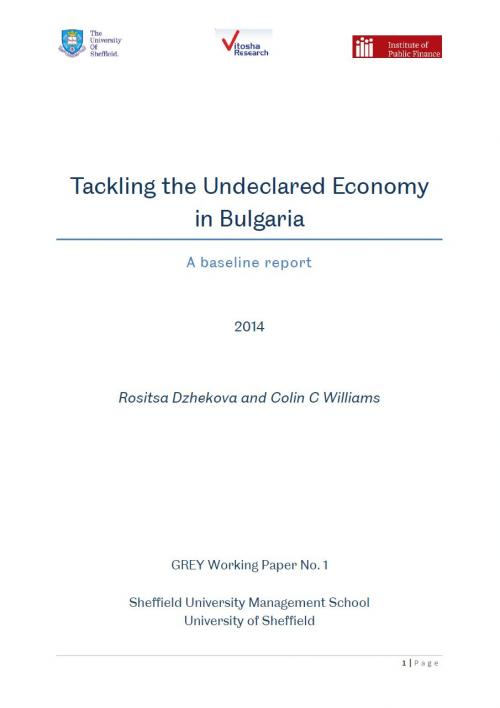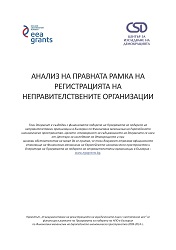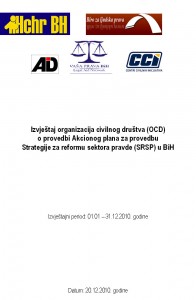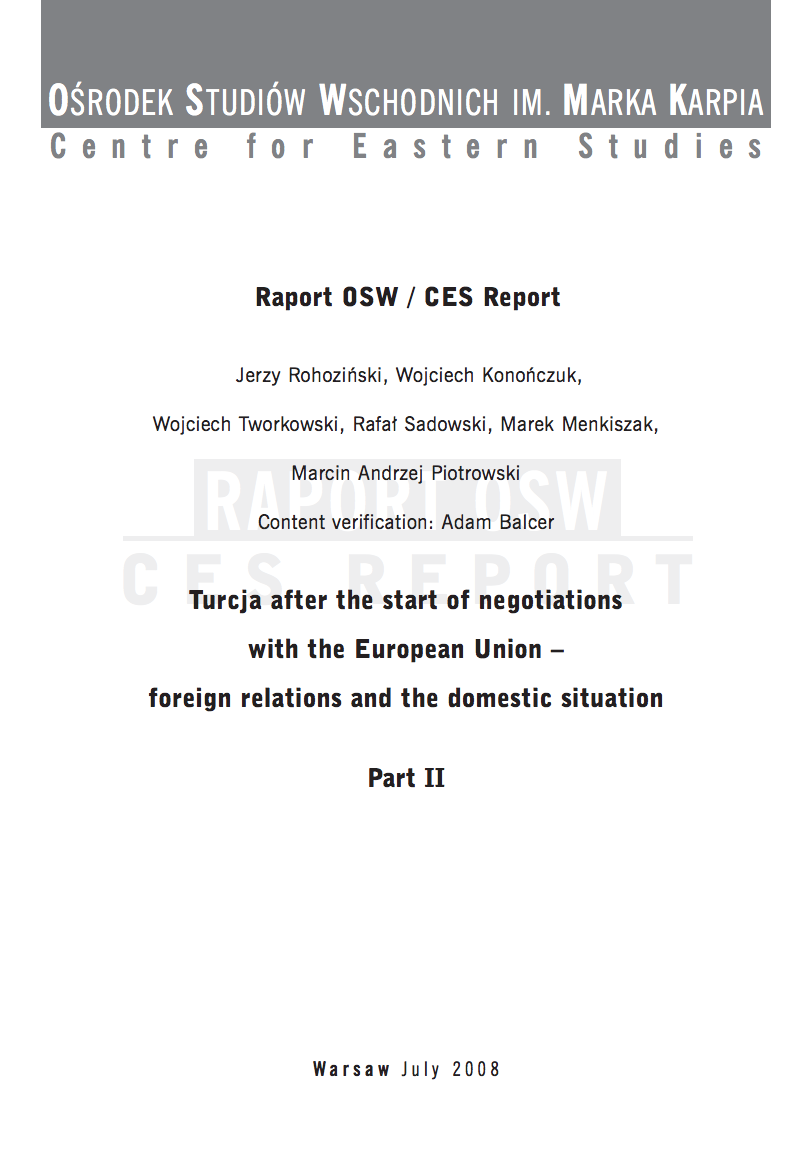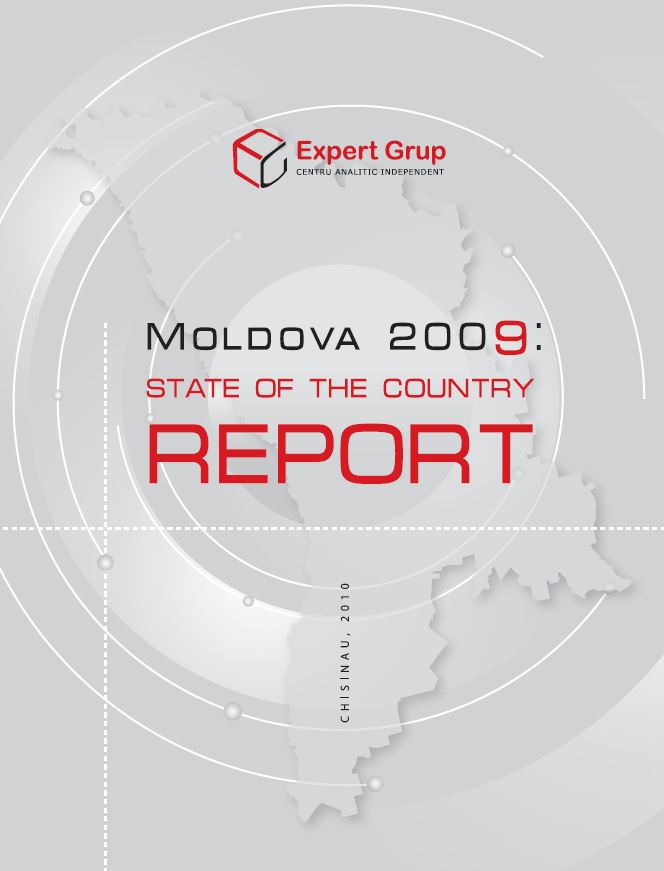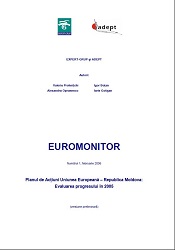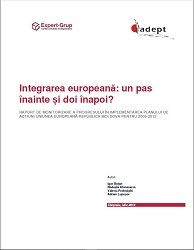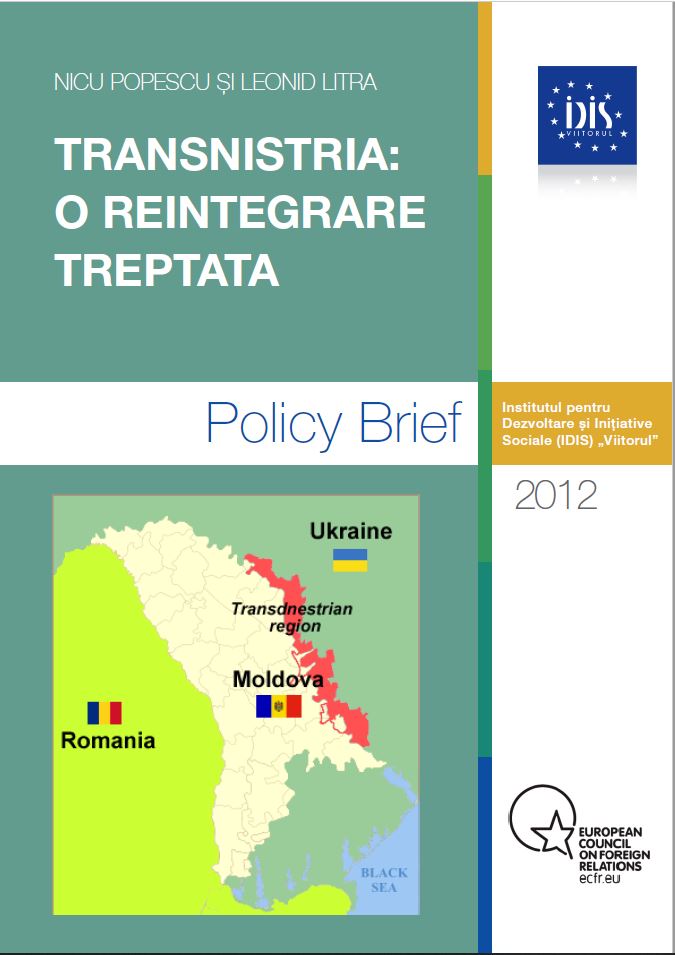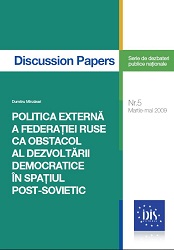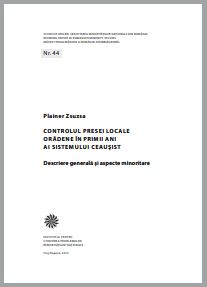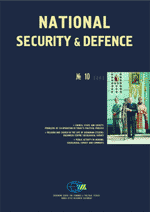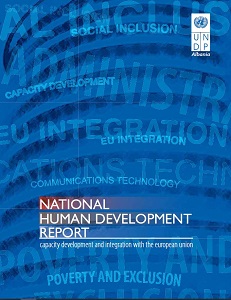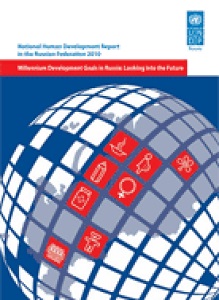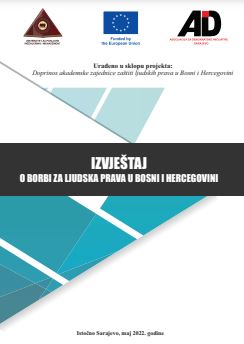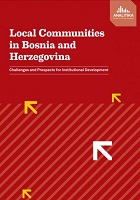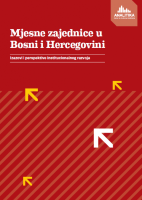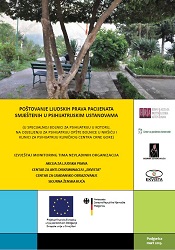Izvještaj organizacija civilnog društva (OCD) o provedbi Akcionog plana za provedbu Strategije za reformu sektora pravde (SRSP) u BiH (2010)
Author(s): Author Not Specified / Language(s): Bosnian
Keywords: BiH; judiciary; reform; civil society; organizations report; implementation of the action Plan; justice sector reform strategy; 2010;
Početkom 2010. godine potpisan je Memorandum o uspostavi mehanizama za praćenje i procjenu provođenja Akcionog plana Strategije za reformu sektora pravde u Bosni i Hercegovini (SRSP-a) sa predsjedavajućim Konferencije ministara pravde u BiH i predsjednicima Visokog sudskog i tužilačkog vijeća BiH i Pravosudne komisije Distrikta Brčko BiH. Uspostavljeni mehanizam je jedinstven ne samo u BiH, već i u zemljama u okruženju, te se kao takav oslanja na najbolje prakse demokratskih društava zapadne Evrope u pogledu participativnog monitoringa i evaluacije javnih politika od strane organizacija civilnog društva (u daljem tekstu: OCD). Memorandumom je utvrđena odgovornost pet organizacija civilnog društva za sistematsko praćenje i procjenu provedbe reformskih mjera i aktivnosti Akcionog plana Strategije za reformu sektora pravde u BiH, a to su Asocijacija za demokratske inicijative - ADI, Helsinški komitet za ljudska prava u Bosni i Hercegovini - HK BiH, Udruženje „Vaša prava Bosne i Hercegovine-, Biro za ljudska prava Tuzla i Centri civilnih inicijativa - CCI. Oslanjajući se na višegodišnje zagovaračko iskustvo u području demokratizacije i zaštite ljudskih prava, te na poznavanje problematike u sektoru pravde u BiH, ove su se organizacije uključile u proces praćenja, evaluacije i izvještavanja o ovoj važnoj reformskoj politici, kako bi na taj način doprinijele što efikasnijoj uspostavi sistema pravde u BiH, koji je odgovoran prema svim građanima BiH, u potpunosti usklađen sa EU standardima i najboljom praksom, te garantuje vladavinu zakona u našoj zemlji. Uspostavljanje mehanizma procjene i praćenja provedbe SRSP-a za organizacije civilnog društva predstavlja pokazatelj pozitivnih promjena i otvaranja institucija u sektom pravde u BiH. Tom je dodatna potvrda i Memorandum za uspostavu donatorskog fonda za provođenje AP SRSP u BiH, na koji je nedavno, nakon dužeg vremena, data saglasnost svih institucija u sektom pravde u BiH. Ovim Memorandumom je predviđeno da se iz sredstava budućeg SRSP Fonda izdvoji cca 30.000,00 EUR na godišnjem nivou za OCD, koje su uključene u proces praćenja i ocjene provođenja SRSP u BiH. U proteklih dvanaest mjeseci, navedenih pet organizacija civilnog društva izradilo je dva tromjesečna i jedan polugodišnji izvještaj o praćenju i procjeni provođenja AP SRSP u BiH. Ovaj godišnji izvještaj OCD-a predstavlja nezavisnu procjenu provedbe reformskih mjera i aktivnosti Akcionog plana SRSP-a od strane nadležnih institucija za period 1. januara - 31.decembra 2010. godine. Svaka se organizacija obavezala na praćenje provedbe SRSP u okvim pojedinog strateškog stuba, što se podudara s prioritetnim podmčjem djelovanja svake organizacije. Tako ADI prati reformske aktivnosti vezane uz Stub 1 - Pravosuđe: Helsinški komitet za ljudska prava prati Stub 2 - Izvršenje krivičnih sankcija: Udruženje „Vaša prava Bosne i Hercegovine- se fokusira na Stub 3 - Pristup pravdi; Biro za ljudska prava Tuzla prati Stub 4 - Podrška ekonomskom rastu, a organizacija Centri civilnih inicijativa analizira mjere utvrđene u okvim Stuba 5 - Dobro rukovođen i koordiniran sektor. Na osnovu niza uspostavljenih kontakata i razmjene informacija tokom proteklih godinu dana, može se konstatovati da postoji adekvatan nivo otvorenosti institucija prema saradnji sa OCD na samom praćenju reforme SRSP, a praktični izazovi koji su se javili prilikom prikupljanja i analize prvenstveno su povezani sa institucionalnim izazovima same provedbe ove izrazito važne reforme. Za njenu pravovremenu realizaciju potrebno je osigurati punu posvećenost i kapacitete svih institucija sektora pravde u BiH, u skladu sa revidiranim Akcionim planom i pripadajućim rokovima za implementaciju planiranih aktivnosti. Osvrćući se na protekli izvještajni period septembar - decembar 2010. godine, zaključak je da nije došlo do značajnih pomaka u realizaciji mjera i aktivnosti AP SRSP-a. Do velikog zastoja u implementaciji najvećeg broja aktivnosti došlo je zbog nedavno provedenih Općih izbora u BiH, što je pojedinim institucijama u sektoru pravde poslužilo kao izgovor za neprovođenje reformskih mjera i aktivnosti. Također, nedostatak resursa (ljudskih i finansijskih), još uvijek nedovoljna i neefikasna horizontalna i vertikalna koordinacija, ali i određeni politički otpori, značajno su usporili blagovremenu i dosljednu provedbu reformi u sektoru pravde u BiH. Analizirajući ostvarene pomake u proteklom izvještajnom periodu, dolazi se do zaključka kako se reforme, uslijed sve očiglednijeg nedostatka političke podrške, odvijaju isključivo na operativno-tehničkom nivou, odnosno pokušavaju se provesti mjere i aktivnosti za koje se smatra da su manje „politične", što se neminovno odražava i na krajnje limitirani napredak. Konačno, kao potvrda ove konstatacije dolazi i Izvještaj o napretku Evropske komisije za 2010. godinu, gdje se također nedvosmisleno ukazuje na značajno usporavanje reformi u sektoru pravde u BiH. lako je od usvajanja SRSP u BiH implementiran određeni broj planiranih aktivnosti, proces provedbe Akcionog plana Strategije karakteriše niz poteškoća koje se, između ostalog, ogledaju u još uvijek nedovoljnim institucionalnim kapacitetima za planiranje i analizu, još uvijek nedovoljno efikasnom sistemu horizontalne, a naročito vertikalne sektorske koordinacije i saradnje na nivou BiH, entiteta, kantona i Brčko Distrikta BiH, nedovoljnom stepenu posvećenosti, kako u samoj implementaciji utvrđenih SRSP aktivnosti, tako i procesu praćenja, procjene i izvještavanja o njezinoj realizaciji. Također, analizirajući izvještaje Tehničkog sekretarijata za praćenje provođenja AP SRSP u BiH, dolazi se do zaključka da ne postoji ujednačen stepen njihove realizacije na nivou BiH, entiteta, kantona i Brčko Distrikta BiH. Ukoliko se ovakav trend nastavi, moglo bi se desiti da oni nivoi vlasti u BiH čija kontinuirana predanost provedbi AP SRSP mjera i aktivnosti izostaje, i koji uslijed toga značajno zaostanu u realizaciji reforme, u značajnoj mjeri naruše koherentnost cjelokupnog sistema pravde u BiH. Krajnje zabrinjava da je, uvidom u prijedloge godišnjih budžeta pojedinih instititucija sektora pravde u BiH za 2011. godinu, bilo nemoguće utvrditi bilo kakvu vezu između podnijetih budžetskih zahtjeva tih institucija i aktivnosti iz AP SRSP u BiH koje se trebaju provoditi u 2011. godini (detaljnije informacije sadržane su u Izvještaju za strateški stub 1 - pravosuđe). Shodno tome, krajnje je upitno da li institucije sektora pravde u BiH i kojim intenzitetom uopće namjeravaju provoditi aktivnosti iz AP SRSP u toku 2011. godine. Ovakav "propust" institucija sektora pravde je nedopustiv, posebno ako se ima u vidu da im je putem projekta tehničke pomoći Španske Agencije za međunarodni razvoj i saradnju (AECID) pružena podrška u izradi srednjoročnih institucionalnih strateških planova i njihovom povezivanju sa srednjoročnim budžetskim okvirom. Također, neophodno je naglasiti da je u potpunosti izostala saradnja Federalnog ministarstva pravde i Ministarstva pravde RS na izradi institucionalnih strateških planova u okviru pomenutog projekta AECID-a. Ukoliko hitno ne dođe do promjene postojećeg kursa i osiguranja nedvosmislene političke podrške realizaciji AP SRSP u BiH od strane entitetskih ministara pravde u BiH, sasvim je izvjestan scenarij prema kojem će ova dva ministarstva pravde postati „uskim grlom* dalje realizacije AP SRSP u BiH i time značajno otežati ispunjavanje ovog veoma zahtjevnog reformskog procesa. Ključni izazovi u provedbi AP SRSP koji su uticali i na efikasnost praćenja od strane OCD ostali su gotovo nepromijenjeni tijekom cijele godine. Neodazivanje pojedinih institucija sektora pravde u BiH sastancima funkcionalnih radnih grupa, nedostavljanje ili značajna kašnjenja u dostavi izvještaja o realizaciji aktivnosti pojedinih institucija Tehničkoim sekretarijatu, šturost informacija sadržanih u većini dostavljenih institucionalnih izvještaja, nedovoljan angažman entitetskih ministarstava pravde i Pravosudne komisije Brčko Distrikta BiH u radu Tehničkog sekretarijata za praćenje provedbe SRSP, te još uvijek nedovoljno jačanje institucionalnih kapaciteta za strateško planiranje, analizu politika i upravljanje projektnim ciklusom u entitetskim ministarstvima pravde u BiH i PK BD BiH, i dalje predstavljaju nepremostivu prepreku značajnijim pomacima u ostvarenju zacrtanih reformi. Zabrinjava i činjenica da se određeni broj reformskih aktivnosti nastoji revidirati ili u potpunosti eliminisati bez poštivanja utvrđenih procedura revizije AP SRSP u BiH, na što se ukazuje u izvještajima za pojedinačne strateške stubove (npr. Izvještaj za strateški stub 2 - Izvršenje krivičnih sankcija). U svrhu povećanja odgovornosti i kvalitete provedbe reforme od strane nadležnih institucija, nosioci vlasti u BiH bi u narednom periodu trebali uložiti dodatne napore na jačanju kapaciteta ureda za reviziju fmansijskog poslovanja u BiH u pogledu provođenja revizije učinaka za ključne programe AP SRSP.
More...
